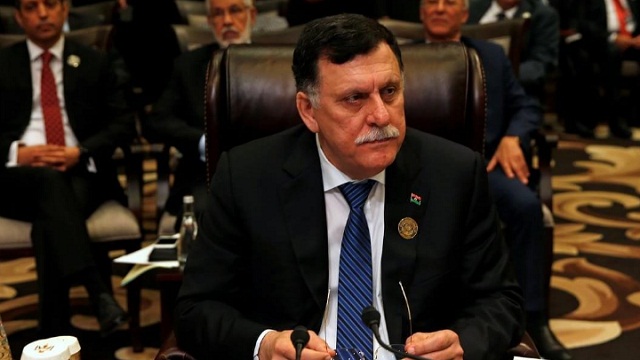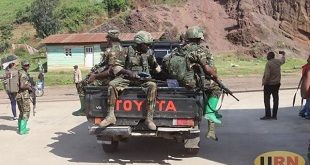
Tripoli, Libya | AFP | Queueing up outside banks in Tripoli, Libyans say they have little hope of an end to the political and economic turmoil shaking their country, on the eve of international crisis talks in Italy.
Accompanied by his five-year-old son, architect Mohamad Kredigh was hoping to get hold of a ticket to let him withdraw cash the next day.
“I’ve been waiting since six in the morning and, five hours later, I still haven’t been able to get a number,” he told AFP.
Withdrawals are rationed when cash becomes available at Libyan banks, prompting the long lines.
“There are hundreds of people like me,” Kredigh added.
To try and manage the crowds, some branches organise different days for women and men.
In front of another bank in Hay al-Andalous, in the west of Tripoli, dozens of women await their turn, many gripping pieces of cardboard to shelter themselves from the sun.
“It’s sad to see. It looks like this is a poor country,” said onlooker Lotfi, observing the scene from a cafe opposite.
Oil-rich Libya has failed to overcome the chaos which swept across the country after the overthrow of dictator Moamer Kadhafi in 2011.
It remains divided, with the UN-backed Government of National Accord (GNA) controlling western Libya from the capital Tripoli.
A rival administration operates in the east, where an elected parliament sits and strongman Khalifa Haftar leads his self-styled army.
“Libyan politicians haven’t stopped their back and forth for four years… and they’ve spent millions of dollars without results,” said Kredigh.
Most Libyans fail to benefit from oil output, with profits largely going to warlords in a country which has been pillaged by militias.
In September, the GNA announced economic reforms to tackle corruption and remedy chronic shortages.
But the measures received widespread criticism, with analysts doubting their effectiveness.
GNA head Fayez al-Sarraj, however, said the queues forming outside banks shows that the reforms are working.
“A few weeks ago we didn’t see them. That demonstrates that there’s money in the banks again,” he told AFP on Thursday.
– Home-grown solutions –
But on the eve of an international meeting hosted by Italy to address the plethora of problems in Libya, residents remained sceptical that their daily struggles were nearing an end.
Waiting outside the bank, Kredigh predicted the summit’s “total failure”.
He saw little more than “international staging for Rome to appear before its European neighbours as sponsoring an initiative in Libya”.
Some view the upcoming meeting as an international power play, with Italy wanting to host Libya’s key players after France brought them to Paris in May.
Rivalries between both western and Arab governments are blamed for aggravating Libya’s crisis.
Suad Maluq, a professor at the University of Tripoli, would rather Italy stayed out of her country’s affairs.
Rome is not “an impartial mediator”, she said, as it gives “support to some parties to the detriment of others”.
Faten Mahmud, a 54-year-old pharmacist, said her earnings had fallen significantly owing to the plummeting value of the national currency.
“Us Libyan are still waiting for a solution to our problems to come from foreign countries, those same foreign countries that we never stop cursing and accusing of all the bad things we suffer,” she said.
“Skhirat, Istanbul, Paris, Rome, Palermo… This is nothing but a tourist itinerary to me,” she said, referring to cities which have hosted Libya talks in recent years.
“The solution must come from (Libyan cities) Tripoli, Benghazi, Sebha, Misrata and Zintan!”
For Tripoli resident Ramadan Nassif, the guest list was more of a problem than the location.
As well as Sarraj and Haftar, the top invitees are Aguila Salah, the eastern parliament’s speaker, and Khaled al-Mechri, speaker of a Tripoli-based upper chamber.
But talks should first be held with the multitude of militias, 45-year-old Nassif said.
Until the armed groups put down their weapons “political dialogue won’t succeed” the 45-year-old said.
“How can there be talks with a gun in hand?”
 The Independent Uganda: You get the Truth we Pay the Price
The Independent Uganda: You get the Truth we Pay the Price



